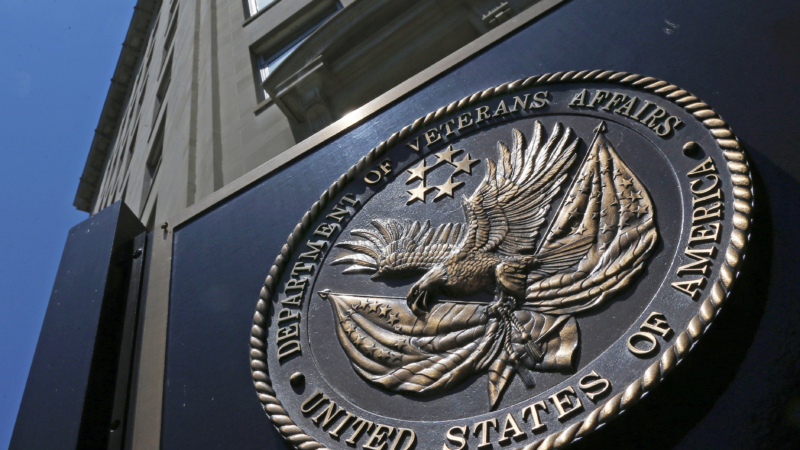The VA will deny gender dysphoria treatment to new patients
The Department of Veteran Affairs said that, effective immediately, it will no longer offer medical treatment for gender dysphoria to veterans who are not already receiving the treatment from the VA or the Department of Defense.
“If Veterans want to attempt to change their sex, they can do so on their own dime,” VA Secretary Doug Collins said in a press release Monday announcing the new policy.
It is the latest in a series of actions the department has taken to strip recognition and services away from transgender veterans. The agency said it’s following the Trump administration’s executive order that says it’s now U.S. policy to “recognize two sexes, male and female,”
While the VA never offered gender-affirming surgery, it offered treatments like hormone therapy and prosthetics, as well as tools to help transgender veterans present as their gender identity.
The agency provides healthcare and benefits for about nine million veterans — VA estimates that fewer than 0.1% identify as trans.
“If as a country we tell ourselves that we want the very best for America’s veterans, this recent action by the VA flies in the face of that and makes one wonder if it’s one that VA physicians would agree with,” said Allison Jaslow, CEO of advocacy group Iraq and Afghanistan Veterans of America. “Veterans have dealt with enough at the hands of politicians during our service, especially those of us who’ve served in wartime, we don’t need to continue to be beaten on as we’re just trying to live our lives post-service.”
Collins said the agency would continue to provide healthcare that’s not related to gender affirming care to transgender veterans, whom the release refers to as “trans-identifying.”
Last Friday, the agency scrapped a policy that had laid out the kind of care trans patients could receive at VA facilities, but also instructed healthcare providers to respect the patients’ pronouns and assign them rooms that matched their gender identity.
VA’s research shows that veterans who are sexual minorities — including LGBTQIA, non-binary, intersex and other veterans — are more likely than average veterans to take their own lives; that figure is higher for transgender veterans. Veterans have a higher average suicide rate than the general population.
The Pentagon has paused gender-affirming treatment for its service members and has been telling trans service members to come forward and leave the military by the end of March. Those policies are being contested in court.
NPR’s Quil Lawrence contributed reporting.
Washington National Opera leaves Kennedy Center, joining slew of artist exits
The WNO is just the latest to say they will no longer perform at the Kennedy Center since Trump took over last year.
Ukrainian drones set fire to Russian oil depot after Moscow launches new hypersonic missile
The strike comes a day after Russia bombarded Ukraine with hundreds of drones and dozens of missiles, including a powerful new hypersonic missile that hit western Ukraine.
Opinion: Remembering Renee Good
Renee Good won a national prize six years ago for her poem "On Learning to Dissect Fetal Pigs," which muses on science and faith. Good was shot to death by an ICE agent this week in Minneapolis.
PHOTOS: Laundry is a chore but there’s a beauty and serenity in the way it hangs out
A new photo series from Filipino photographer Macy Castañeda Lee offers a visually striking view of the mundane task of doing laundry and the role it plays in a rural economy.
2026 looks ominous for media, from Hollywood to journalism
Critic at large Eric Deggans says that in 2026, audiences have more power than they realize to determine the future of news and entertainment.
Influencer, White House welfare fraud claims are distorted, but the system has risks
Federal officials are targeting Democratic-led states over alleged safety-net fraud. Critics worry a drumbeat of unfounded accusations could undermine public trust.







